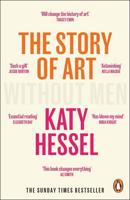Publisher's Synopsis
In the mid-19th Century America was host to a curious architectural trend: the octagonal house. Such eight-sided homes-as well as schools, churches, barns, and businesses-were popping up across the country so quickly that by 1857 over 1,000 had been built. Though the craze has long since subsided, the book that started it all remains a valuable and curious artifact of architectural history.
A phrenologist by trade and eccentric Renaissance man by character, Orson S. Fowler subscribed to the principle that form follows function in architecture years before the edict was popularized by the Louis Sullivan and Frank Lloyd Wright. For a multitude of reasons explored at length in these pages, Fowler determined that an octagonal house provides for the maximal utilization of space and resources like heat and water. Years ahead of his time with respect to his concerns about energy efficiency, Fowler includes plans that call for central heating, running water, and "speaking tubes". Modern readers will likely be amused by his short sermon on the potential benefits of an "indoor water closet". Though Fowler himself was never trained as an architect, he supports his assertions with strong reasoning and even includes plans and instructions for designing and constructing an octagon house.
As the long-dormant octagonal home craze heats up once again, The Octagon House continues to be highly sought after for its creative architectural suggestions, and its cheerful, engaging, and quirky tone. True to character, Fowler folds a great deal of vivacious, offbeat commentary into this treatise on octagonal architecture. With plenty of sudden left turns and amusing anecdotes, this high-quality re-issue of 1848's The Octagon House is sure to delight anyone who appreciates art, architecture, and curious minds.








